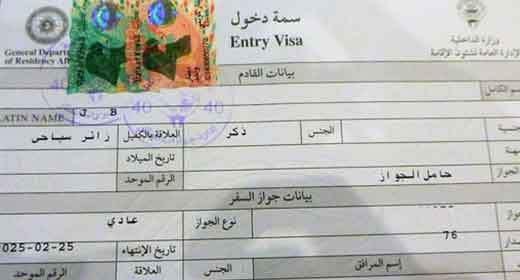After the Philippines allegedly broke a bilateral labor agreement with the state, Kuwait halted all forms of employment and entry permits for Filipinos on Tuesday, according to sources in the interior ministry, according to Kuwait Times. They said that Sheikh Talal Al-Khaled Al-Sabah, the interior minister, had ordered the suspension “because Philippines has not complied with the provisions of the labor agreement between the two countries.”
According to the sources, the decision was made because “Philippines has breached the conditions and provisions of the labor agreement,” and it intends to impose state sovereignty. As of late Tuesday, the Kuwaiti authorities have not yet notified the Philippine Embassy in Kuwait of any such decision.
Following the horrifying murder of a 35-year-old Filipina maid by a Kuwaiti teenager, the Philippines stopped sending new workers, particularly new domestic helpers, to Kuwait in February. The 17-year-old son of Jullebee Ranara’s employer was taken into custody by authorities after her body was discovered in the desert.
Philippine labor officials announced in February that they intended to negotiate with Kuwait to reevaluate the labor agreement that the two nations had signed in 2018.
Following accusations of growing mistreatment of Filipino employees, particularly domestic assistants in Kuwait, the agreement was signed by representatives of two countries. Kuwait is home to 268,000 Filipinos who work and reside there.
As expatriates make up two-thirds of Kuwait’s population, the Kuwait Progressive Movement earlier vehemently opposed what it claimed to be the country’s exploitation of foreign labor. It urged authorities to avoid blaming them in particular for the imbalance in the demographic structure. The denial was made in a statement released by the socialist organization after the Cabinet revealed late Monday that a national committee will be established to control the population of the nation, primarily to lower the number of expats.
The statement rejected “the discriminatory proposition that holds expats responsible for the demographic imbalance, which was the result of several factors, including visa trade and recruitment of foreign workers because their wages are much lower”.
According to the movement, foreign employees are subject to a number of discriminatory practices, including poor pay, delayed or unpaid paychecks, lengthy workdays, passport confiscation, and others. It denounced the kafala system, also known as sponsorship, and compared it to slavery because it binds foreign workers forcibly to their employers.












